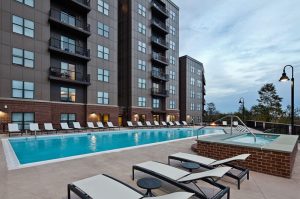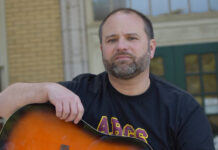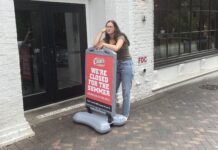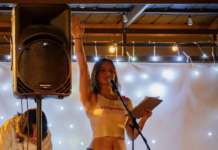Charlottesville is often considered and even advertised as a ‘college town,’ specifically one of the Ten Best College Towns in America. Its businesses, health services, and real estate revolve around catering to the undergraduate and graduate population that attends the University of Virginia. While this town may appear to be merely an asset or a resource to utilize for some undergraduates, these students must be reminded that Charlottesville is primarily a town that many people call home.
This home is in danger as university housing, or the lack thereof, has caused a widespread displacement of Charlottesville residents to occur. Professor Laura Goldblatt explains the issue by describing how many luxury housing options, especially those that surround Grounds, are marketing to obtain the business of students.

“The explosion of luxury student housing complexes (the Flats, Beacon on Fifth, etc.) has raised the property values in the neighborhoods where these complexes are located, and therefore the property taxes on surrounding units,” Professor Goldblatt said.
“This endangers low-income homeowners who might struggle to keep up with new taxes and renters, since landlords will pass the cost of these new taxes onto their tenants. Such practices can make previously affordable units unaffordable to residents.”
According to Professor Goldblatt’s analysis, this issue is compounded with the physical landscape of Charlottesville. Many neighborhoods have slowly become hidden and overshadowed by the new buildings that offer solace to students. This invisibility that she highlights poses a key question: who gets to be seen in Charlottesville?
The University has plans to initiate their affordable housing initiative, which will fund the construction of 1,000-1,500 affordable housing units. While this program has begun and seems promising, there is more that we can do as students to aid the Charlottesville community.
Helping the Charlottesville Community
Professor Goldblatt outlined three ways students can support the community, the first being utilizing the correct terminology when discussing the housing problems in Charlottesville: “low-income and public housing residents in the area tell organizers that they prefer the word ‘displacement’ to ‘gentrification.’”
” ‘Gentrification’ implies that the groups moving in are somehow better than the groups they push out, and residents reject that interpretation. ”
– Professor Laura Goldblatt
Second, Professor Goldblatt describes the power we hold as students. Pressuring the University to create affordable housing on-Grounds could limit the number of students living in Charlottesville and thus ease competition among real estate and lower prices.
Finally, as students, we should “reach out to the Public Housing Association of Residents (PHAR) or the Legal Aid Justice Center and ask about ways to volunteer. Talk to the people who clean our buildings, serve students food, and maintain Grounds. In all these efforts, approach these new relationships as opportunities to learn from people who know more about the Charlottesville community than most students do, and who have a set of expertise that can be difficult to find in the formal classroom.”
“Students should seek to be informed and to help and to realize that building relationships can take a long time,” Professor Goldblatt concluded. It is these relationships that make a student’s time at UVA the most memorable.
















